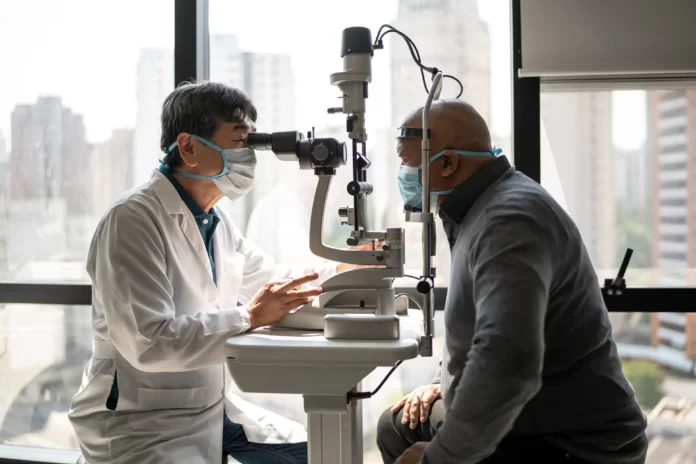Ensuring optimal eye health and vision requires the expertise of a skilled and trustworthy optical doctor. Whether you seek a routine eye exam, manage a pre-existing condition, or consider corrective procedures, finding the right optical doctor is crucial to maintaining your eyesight. In this comprehensive guide, we will navigate the process of choosing an optical doctor, offering a step-by-step approach to help you make informed decisions for your eye care needs.
Exploring the Responsibilities of an Optometrist
Differentiating Between Optometrists and Ophthalmologists
The first step in finding the right optical doctor is understanding the distinction between optometrists and ophthalmologists. Optometrists specialize in primary eye care, prescribing glasses or contact lenses, and detecting common eye conditions. On the other hand, ophthalmologists are medical doctors who can perform surgery and treat a broader range of eye conditions. Determine which type of professional aligns with your specific eye care needs.
Considering Subspecialties
Within the realm of eye care, there are various subspecialties, such as pediatric optometry, neuro-ophthalmology, and cornea and refractive surgery. Depending on your unique requirements, consider whether you need an optical doctor with expertise in a specific subspecialty. This becomes especially relevant if you have a pre-existing eye condition that requires specialized attention.
Researching and Compiling a List of Optical Doctors
Seeking Recommendations
Start your search by seeking recommendations from friends, family, and colleagues. Personal experiences can provide valuable insights into an optical doctor’s skills, professionalism, and bedside manner. Also, consult with your primary care physician, who may have trusted recommendations within their professional network.
Online Reviews and Testimonials
Utilize online resources to explore reviews and testimonials from other patients. Websites, social media platforms, and healthcare review sites often feature patient feedback on their experiences with specific optical doctors. Consider both positive and negative reviews to understand a doctor’s strengths and potential drawbacks comprehensively.
Consulting with Optometrists
Optometrists often work closely with ophthalmologists and can provide valuable recommendations based on their knowledge of your eye health. Schedule a consultation with your optometrist to discuss your needs and seek their opinion on suitable optical doctors. This collaborative approach ensures a network of professionals working together for eye care.
Evaluating Qualifications and Credentials
Board Certification
Board certification is a crucial indicator of a doctor’s expertise and commitment to maintaining high standards of care. Ensure that the optical doctor you are considering is board-certified. Board certification implies that the doctor has passed rigorous exams and continues to participate in ongoing education to stay abreast of advancements in the field.
Education and Training
Verify the optical doctor’s education and training background. A reputable doctor typically completes a comprehensive program from an accredited institution and pursues additional training or fellowships in specialized areas. Understanding the doctor’s educational background provides insights into their knowledge and skill set.
Licensing and Professional Memberships
Confirm that the optical doctor is licensed to practice in your state. Additionally, check if they are affiliated with reputable professional organizations and associations, such as the American Optometric Association (AOA) or the American Academy of Ophthalmology (AAO). Membership in these organizations signifies a commitment to professional growth and adherence to ethical standards.
Assessing Technology and Diagnostic Capabilities
State-of-the-Art Equipment
Advances in technology play a pivotal role in diagnosing and treating eye conditions. Assess whether the optical doctor’s practice is equipped with state-of-the-art diagnostic tools. Modern equipment enhances the accuracy of assessments and allows for early detection of potential issues.
Availability of Comprehensive Eye Exams
A thorough eye examination is the foundation of good eye care. Inquire about the doctor’s approach to comprehensive eye exams, including the evaluation of refractive errors, visual acuity, and the health of the eye’s internal structures. A holistic examination ensures a comprehensive understanding of your eye health.
Considering Personal Compatibility and Communication Style
Bedside Manner
A positive doctor-patient relationship is essential for effective communication and successful treatment. Consider the doctor’s bedside manner during your initial consultation. A compassionate and empathetic optical doctor fosters a supportive environment, especially if you have concerns or need guidance regarding your eye health.
Communication Style
Effective communication is key to understanding your diagnosis, treatment options, and preventive measures. Assess the doctor’s communication style during your consultation. An excellent optical doctor takes the time to explain complex concepts clearly and understandably, ensuring that you are actively involved in your eye care decisions.
Reviewing Financial Considerations and Insurance Coverage
Insurance Participation
Confirm whether the optical doctor participates in your insurance network. In-network providers often result in lower out-of-pocket costs. Contact the doctor’s office and your insurance provider to verify coverage details, including co-pays, deductibles, and additional fees.
Transparent Billing Practices
Transparent billing practices are crucial to avoiding unexpected financial burdens. Inquire about the doctor’s billing procedures, including the cost of routine exams, diagnostic tests, and any potential additional fees. A reputable optical doctor’s office provides clear and detailed information on pricing.
Conclusion
Finding the right optical doctor is a significant step toward maintaining optimal eye health and vision. Following this step-by-step guide, you can confidently navigate the process, ensuring that your chosen doctor aligns with your specific needs and preferences. Whether you prioritize qualifications, technological capabilities, or a personal connection with your doctor, a thoughtful approach to selecting an optical doctor contributes to a positive and proactive approach to eye care. Your eyesight is a precious asset, and the right optical doctor becomes a partner in preserving and enhancing this invaluable sense.
